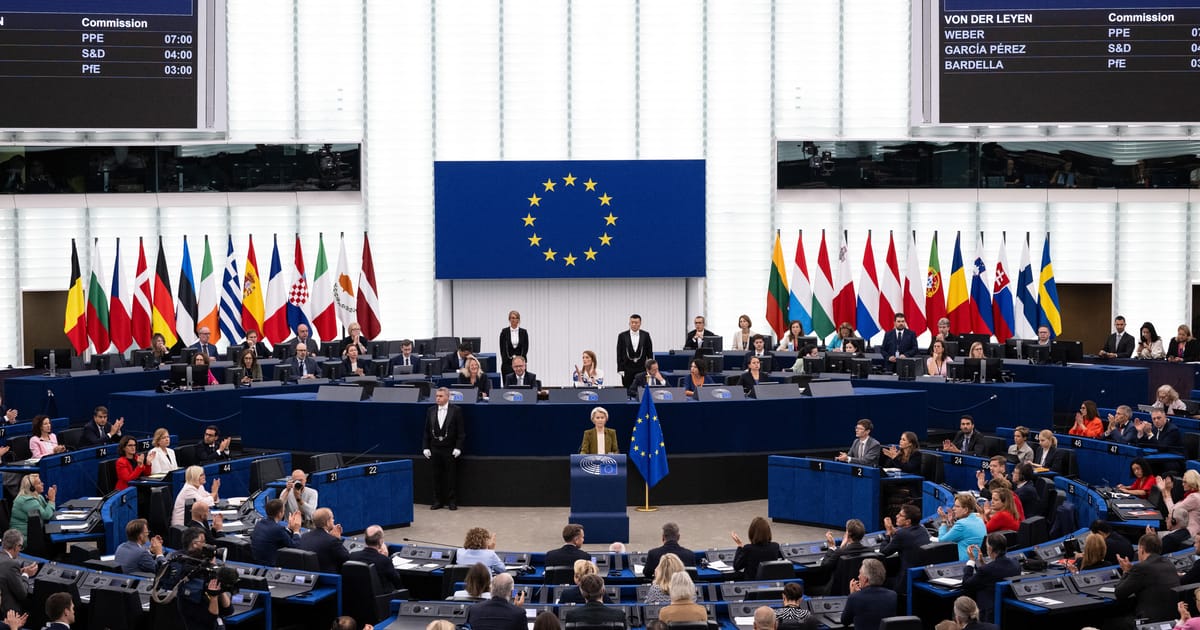Largest trading partner
The announcement that the EU will sanction key Israeli officials and settlers drew applause and heckles from across the chamber.
Many lawmakers, some of whom were wearing red in solidarity with Gaza, welcomed the announcement. But it sparked uproar on the right-hand side of the chamber where some members, including from Germany’s far-right Alternative for Germany (AfD), shouted interruptions, prompting attendants and MEPs to tell them to be quiet.
The EU is Israel’s largest trading partner, accounting for 32 percent of its total trade in 2024, so any possible suspension will have a major effect on the Israeli economy. The EU exports machinery and transport equipment, chemicals and other manufactured goods to Israel, with total exports amounting to €26.7 billion in 2024.
In long, behind-closed-doors negotiations between the main political groups ahead of von der Leyen’s speech, the Parliament failed to agree on a joint stance on Gaza. Von der Leyen’s center-right European People’s Party (EPP) walked out of a deal as they disagreed with the content of the final text, which means the resolution will not pass Thursday’s vote, three officials, granted anonymity to speak freely, said.
The toughened stance of the Commission president’s speech, however, has opened hopes among center-left political groups that the EPP will change course to reflect von der Leyen, their highest-ranking member.
“I continue to receive mixed signals from the EPP regarding their support for the Gaza resolution,” liberal Renew lawmaker Hilde Vautmans, negotiating the Gaza resolution, told POLITICO. “But this morning, there was a clear shift in Commission President Ursula von der Leyen’s position by proposing sanctions on Israel and the suspension of the trade pillar of the EU–Israel Association Agreement. She has set a new and important direction.
“I hope this momentum will positively influence EPP support for the resolution,” she added.
A suspension of the trade aspects of the association agreement with Israel would not amount to targeted sanctions or an EU-wide arms embargo — steps that civil society and some member countries have also called for to exert economic pressure on Israel — but would instead reimpose tariffs.
Still, reaching the necessary qualified majority to suspend that wouldn’t be easy. While a majority of countries voted in favor of reviewing the EU’s association agreement with Israel, that doesn’t mean all of them will vote in favor of suspending its trade part. The Commission’s previous proposal to suspend the country’s participation in the research and innovation fund Horizon did not gather enough support among member countries. Large critical countries — such as Italy and Germany — would need to support the suspension. And close Israel allies such as Hungary, Czechia, Austria and Poland are also unlikely to waver in their support.
This article has been updated.
